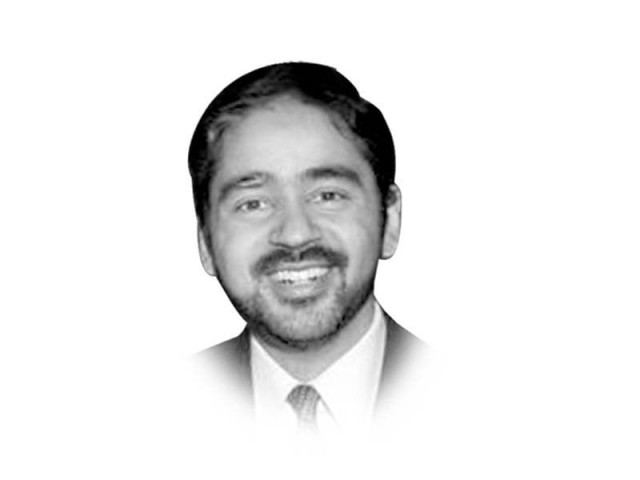Healing through service
The task of improving trust and building a cohesive society cannot be outsourced to NGOs

The writer is a Howard Hughes Medical Institute professor of biomedical engineering, international health and medicine at Boston University.
He tweets @mhzaman
The trust deficit is not just between the citizens and the state. It is also among those who find themselves on opposite sides of the argument. While those who incite mutiny and call for murder should be dealt with full force of the law, we cannot be oblivious to the underlying causes that motivate thousands who decide to join the bandwagon of chaos. Looking at the images of the nameless ones who came on the streets, one cannot help but ask who are these teenagers? Where is their home? What are some of the socio-economic challenges in their hometowns and mohallas? Perhaps, a pertinent question to ask, at this junction is whether the state has failed them? Or was there ever even a state to begin with — a state that could take care of their basic needs?
There cannot be any justification for hate or bigotry. Neither can one justify challenging the writ of the state. But at the same time, we cannot be oblivious to the frustrations that become fodder for hate. While maintaining law and order, we have to recognise that large gaps in our social services contribute to a fragmented, frustrated and dysfunctional society.
The task of improving trust and building a cohesive society cannot be outsourced to NGOs. We have to own it. Our colleges and universities in particular have a role to play. Not only do they need to create an inclusive environment within their confines, they also have to create programs that go out, far beyond their typical zones of interest. Whether it is medicine or engineering, social sciences or humanities, universities and colleges must prioritise three things. First, there should be programmes that build trust, and do so with humility and empathy, and not with a sense of superiority. Engaging with madarassa students may not sound cool, but an opportunity to engage, interact and understand is a starting point of a cohesive and tolerant society. At times this may be difficult — but we have to build bridges of trust and learn to hear each other. The university is a perfect place for a respectful dialogue to start.
Second, university leadership and HEC should create programs and dedicate resources to understand the grievances of those who we have left on the margins. Beyond the schools and seminaries, this means going to neighbourhoods of people who feel frustrated to the point of dejection. This would require listening, understanding and appreciating the problems faced by our people.
Third, there should be programmes and incentives to create specific ventures that tackle pressing and persistent problems of our socially marginalised groups. Supporting innovations and entrepreneurs who specifically work in historically disadvantaged areas, scholarships for medical students who take time to go to the homes of those who we no longer want to be seen with, and national recognition and financial support for those who provide specific skills for meaningful employment among the unemployed (but vulnerable) youth has to be a priority. A lot of this does already exist, but remains fragmented and rarely done with the sense of purpose, continuity and dedication that colleges and universities can bring. We have to start today to begin the process of healing and understanding to create a society that emphasises a collective responsibility to the state and to each other.
Published in The Express Tribune, November 6th, 2018.
Like Opinion & Editorial on Facebook, follow @ETOpEd on Twitter to receive all updates on all our daily pieces.















COMMENTS
Comments are moderated and generally will be posted if they are on-topic and not abusive.
For more information, please see our Comments FAQ